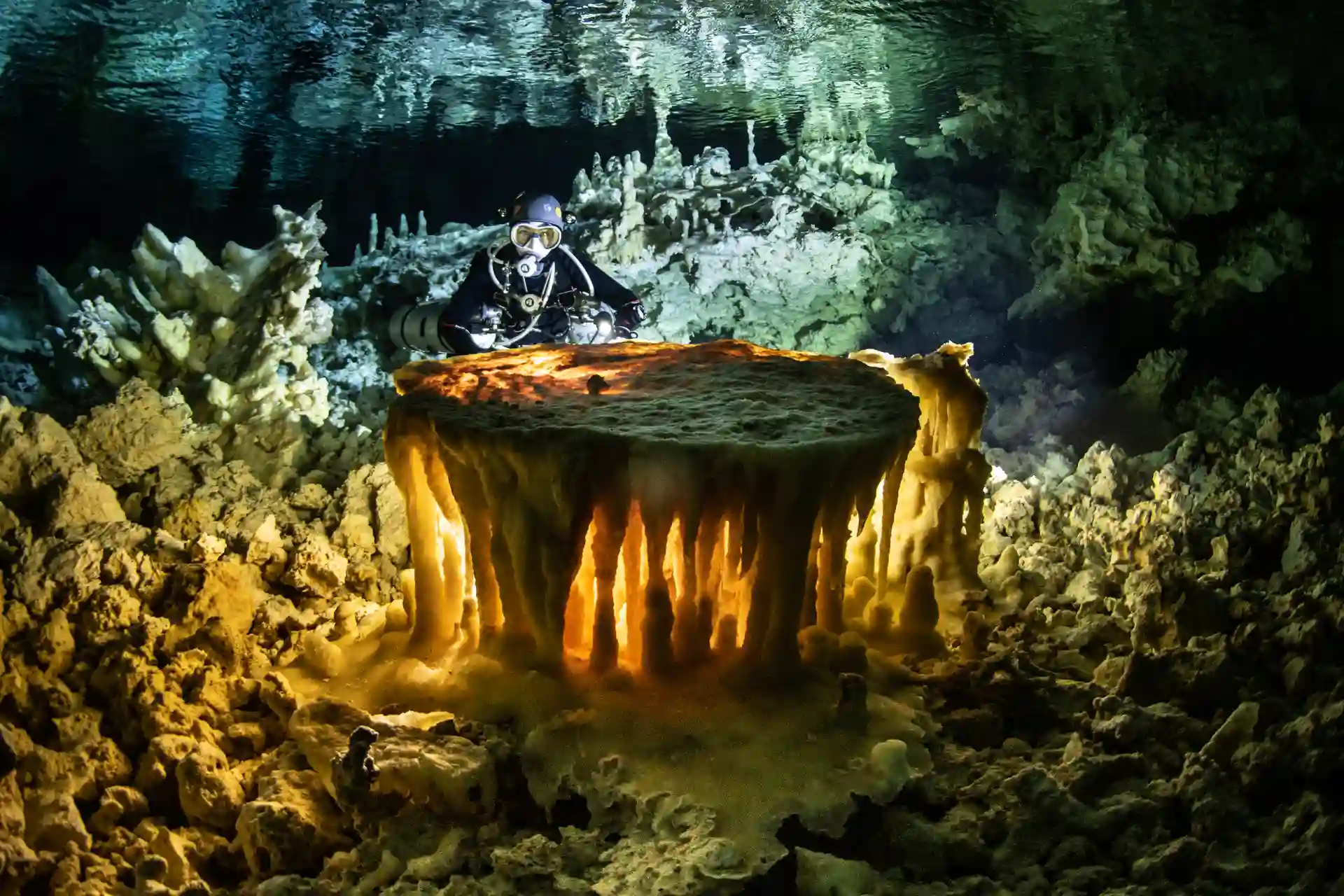THE SCIENCE
Due to their inaccessibility, caves are some of the least understood places on our planet. Before we can protect a subterranean environment we must describe it. Geomorphology and hydrologic surveys will illustrate the cave’s scope and water flow dynamics while identifying external impacts from contamination, microplastics and climate change. Customized, pioneering field sampling protocols and analysis will provide the scientific basis for ecosystem preservation and UNESCO Global Geopark recognition. Biological samples will describe the genetic biodiversity of the cave ecosystems, including new species.
Geology & Hydrology
Dr. Eko Haryono’s team from Gajah Mada University will study the geological environment of Pulau Muna’s caves, formed by limestone dissolution over time.
The aim is to gain valuable insights into the Earth’s history and processes by specifically studying geology and hydrology to understand groundwater resources, water flow, and environmental interactions.
These unique ecosystems are sensitive to changes, and understanding how they function and are impacted by human activities will aid in conservation efforts.The study will provide valuable information for resource management and conservation in the area.
Environmental DNA
eDNA analysis is a powerful tool for biodiversity research and conservation, providing insights into species abundance, identifying endangered species, monitoring invasive species, and tracking ecosystem changes.
As part of the Buteng expedition, Dr. Eko and the team will utilize eDNA analysis to understand the biodiversity of Pulau Muna caves. Their research can identify and protect important species and provide valuable information for conservation efforts, benefiting nature and local communities.
Biospeleology
Expedition Buteng will focus on biospeleology, studying life in caves and subterranean environments to understand adaptation and evolution in extreme conditions. This research is vital to conserve sensitive cave ecosystems.
The team will collect data on organisms, including bacteria, fungi, and invertebrates, to identify and protect habitats and species.
Furthermore, biospeleology has practical applications in medicine and biotechnology, as it may uncover new sources of bioactive compounds and broaden our understanding of Earth’s diversity.
Science and team effort
Expedition Buteng, in collaboration with the University of Gadhja Mada and the local government, will study several factors within several fields of environmental sciences. The team of 11 professional cave divers and 6 specialist speleologists, along with 5 scientists, will gather data to benefit the environment and local communities.
The expedition is dedicated to collaboration, innovation, and achieving the United Nations’ goal of clean water access. The expedition is a testament to the incredible feats that can be achieved when passionate minds come together, in pursuit of a greater purpose, paving the way for a new era of scientific cave exploration.

